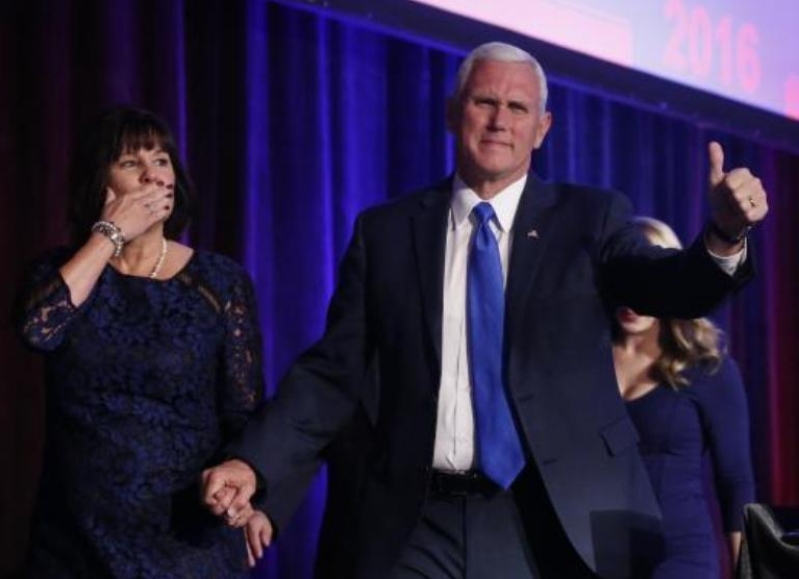
Who U.S. Vice President Mike Pence will or will not dine with alone keeps attracting opinions, with some of them now turning more legalistic in interpretation.
While doing a profile of Indiana's former First Lady, a Washington Post reporter, Ashley Parker, cited a 2002 interview with Mike Pence in The Hill in 2002. In it, he said he never ate alone with a woman other than his wife, Karen. Pence also said he wouldn't attend an event where alcohol would be served without her by his side.
Evangelist Billy Graham followed a similar rule of not traveling, meeting or eating with another woman alone. That's why the practice is sometimes referred to as "The Billy Graham Rule." It's still common among many evangelicals, reports USA Today.
Due to the comment from Pence, social media postings quickly ran rampant with jokes and rants about Pence's wife-rule.
On Capitol Hill, some Congressmen will not travel alone in a car with a female staffer, the National Journal has reported. Some politicians set gender-neutral rules that have a side effect of keeping them from being alone with women, such as excluding any staff from the office before 7 a.m. or after 7 p.m.
The practice described by Pence in that 2002 interview is clearly illegal when practiced by a boss in an employment setting, and deeply damaging to women's employment opportunities, said Joanna Grossman, of the Ellen K. Solender Endowed Chair in Women and Law at SMU Dedman School of Law.
Grossman said some politicians clearly apply special rules to women.
Title VII, which governs workplace discrimination, does not allow employers to treat people differently on the basis of certain protected characteristics, one of which is sex. This means an employer cannot set the terms and conditions of employment differently for one gender than for the other. Grossman said it includes any aspect of the relationship between employer and employees, extending to benefits like equal access to the employer.
Employers are not permitted to classify employees on the basis of gender without proof that sex is a bona fide occupational qualification for a particular job. A Pence-type rule could never satisfy this test, said Grossman.
"A male boss cannot casually cordon off certain jobs, tasks, or opportunities for men only," she said. "I am assuming here that Pence does occasionally dine with men - table for two - without his wife present."
Employers also are not permitted to base employment decisions on gender-based stereotypes, including the stereotype that women are incapable of having purely professional relationships with male bosses or co-workers, she stated.
Pence's defenders said he was merely acting prudently, and expressed amazement at the all the fuss.
"Yet we know that women pay a heavy price for behavior that either resembles his or falls on the same continuum," said Grossman. "We know this from anecdotal reports and surveys of women who report exclusion from travel, events, or one-on-one meetings with male bosses; from cases in which men have fired female subordinates to assuage jealous wives; and from decades of employment-discrimination litigation in which we get a picture of the everyday ways in which workplaces remain unequal for women."
Grossman said Vice President Pence's "policy" applies to all women, not just one in particular, which is why it runs afoul of Title VII.






